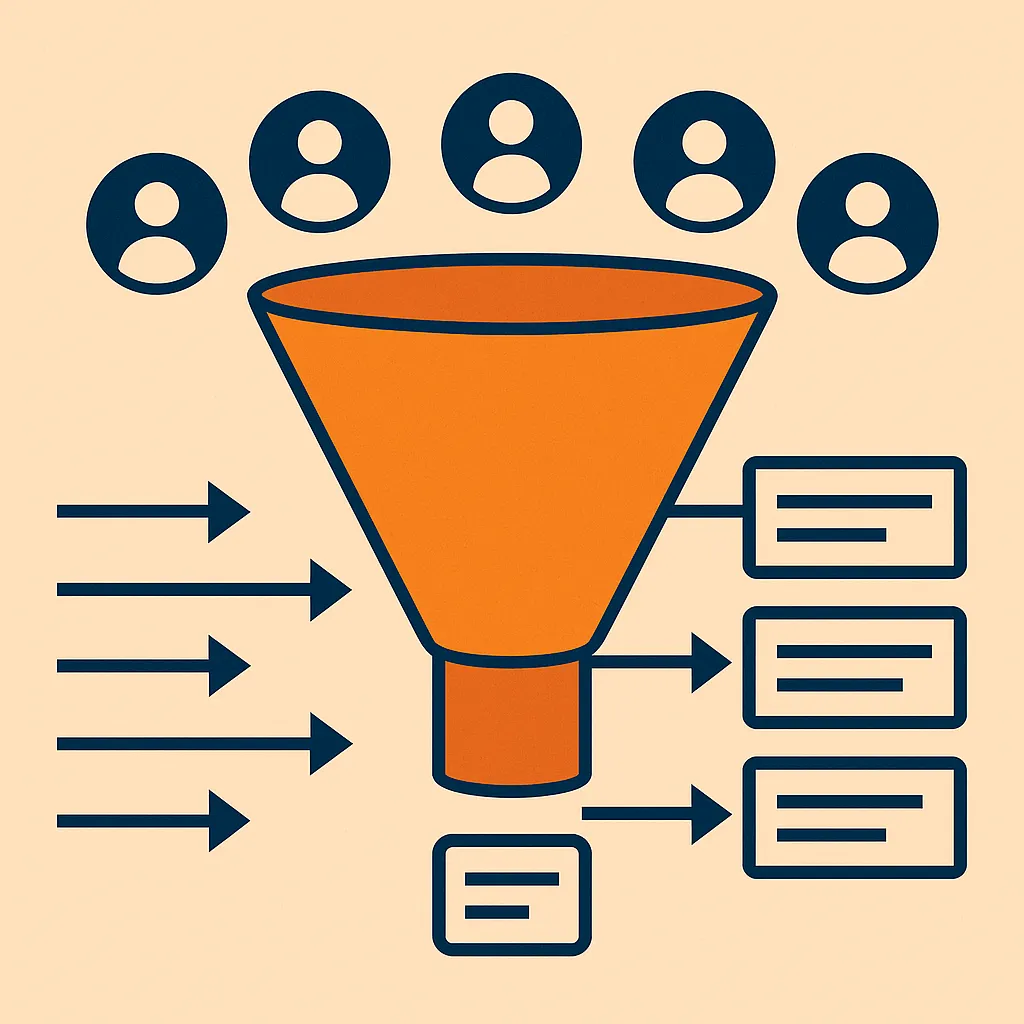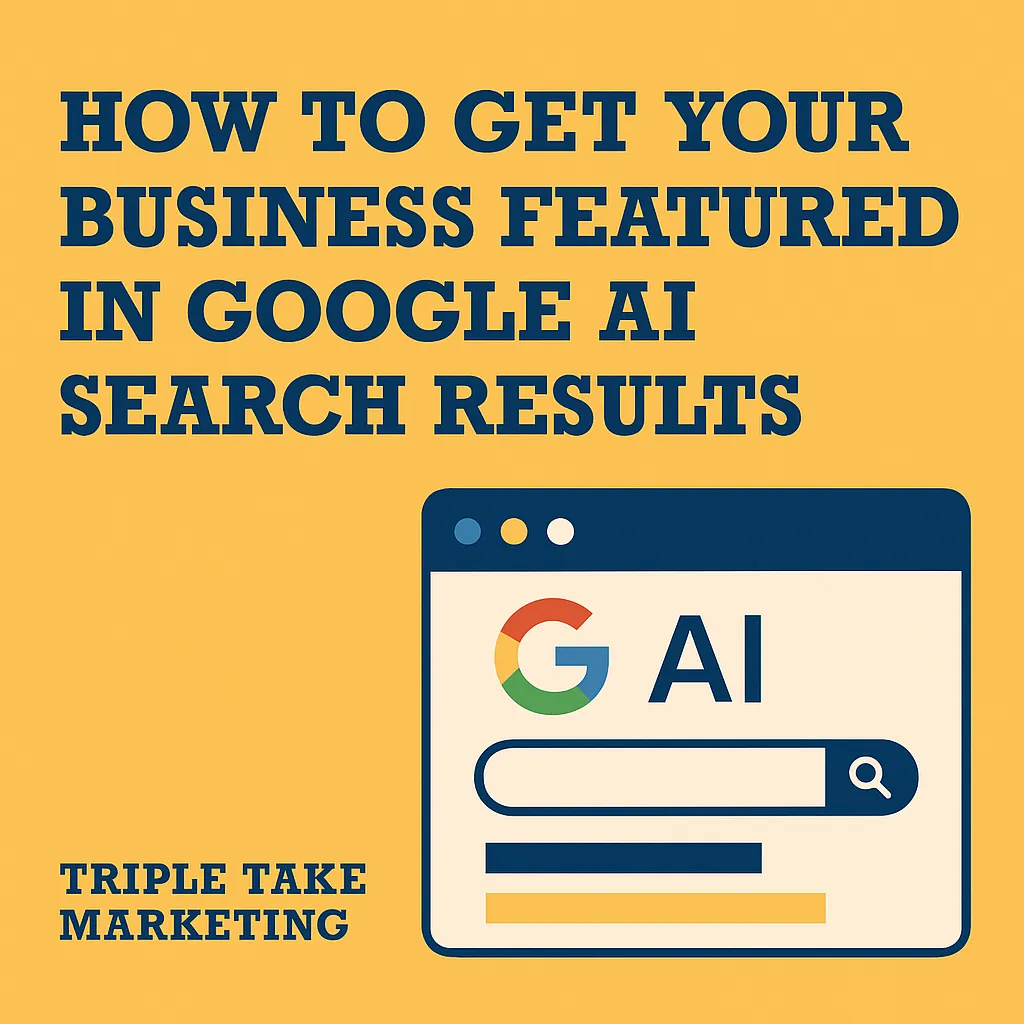Triple Take Marketing
Trusted by Leading Local Brands
We're proud to partner with these amazing local companies to deliver exceptional marketing results.
Local Marketing Agency in Cartersville, Georgia
Our expertise spans digital strategy, advertising, content creation, and SEO, all tailored to elevate your brand and share your story in a way that resonates. At Triple Take, your goals are our goals, and we’re here to be your trusted partner in every step of your marketing journey. Connect with us, and let’s bring your story to life.
OUR AWARDS





WHAT WE DO
OUR SERVICES

Facebook Ads

Google Ads

Website Design

Email Marketing

Podcasts

Creative Work

CRM Integration

Consulting
PORTRAIT
WEDDING
TRAVEL
Triple Take Team


Aaron Whipple
Co-Founder & Strategic Systems Director
Aaron's a systems thinker who builds marketing engines that perform. He leads the team at Triple Take with a strategic mind and an eye for what works.
Learn More →


Jason Satcher
Co-Founder & Creative Director
Jason's a creative visionary who knows how to spot the story that makes a business stand out. He leads the team with a sharp eye and high standards.
Learn More →


Madison Letcher
Marketing Project Manager
Madison is the reason Triple Take campaigns launch flawlessly and on schedule. She's part project manager, part mind reader, and part miracle worker.
Learn More →


Jonathan Lovelace
Video Production Specialist
Jonathan makes local businesses look like industry leaders through his camera lens. He captures the authentic moments that make your customers think "I want to work with these people."
Learn More →


Julia Spicer
User-Generated Content Specialist
Julia is a master at creating authentic-looking content that converts. She specializes in creating ads that feels genuine—like a real customer sharing their experience.
Learn More →
FAQs
What types of businesses does Triple Take Marketing work with?
We work with businesses of all sizes, from local startups to established companies. Whether you’re seeking digital strategy, advertising, content creation, or SEO services, we tailor our approach to meet your specific goals and industry needs.
How does Triple Take ensure a personalized approach to marketing?
At Triple Take, we prioritize building genuine partnerships with our clients. This means taking the time to understand your business, audience, and objectives. From there, we craft creative solutions that align with your vision and deliver measurable results.
What makes Triple Take Marketing different from other agencies?
We put people first. With an on-call mentality, we’re always here for you. If something isn’t working, we fix it—fast. We’re not just a service provider; we’re your partner.
Blog & Articles

How to Get Your Business Featured in Google's AI Search Results
How to Get Your Business Featured in Google's AI Search Results: The Complete 2025 Guide
The AI Search Revolution is Here (And Your Business Can't Afford to Miss It)
If you've been paying attention to how people search for businesses lately, you've probably noticed something big has changed. When someone asks Google a question about your industry, they're not just getting a list of blue links anymore. Instead, they're seeing comprehensive AI-generated summaries that pull information from across the web — and if your business isn't part of that conversation, you're missing out on a massive opportunity.
Here's what I mean: Google's AI Overviews now appear in over 13% of all searches, and that number is growing fast.

When someone searches for "best accounting software for small businesses" or "how to choose a marketing consultant," Google's AI might create a detailed response that mentions specific companies, explains key considerations, and even provides recommendations. The businesses that get mentioned in these AI responses? They're seeing more qualified traffic, higher engagement, and better conversion rates than ever before.
But here's the thing — getting featured in Google's AI search results isn't about luck or having the biggest marketing budget. It's about understanding how AI systems work and creating content that demonstrates your expertise in a way that AI can understand and trust. And that's exactly what I'm going to show you how to do.
What You'll Learn in This Guide
In this comprehensive guide, I'll walk you through everything you need to know to position your business as an authority that Google's AI wants to cite and recommend. We'll cover:
The strategies that are working right now in 2025
The technical details that actually matter
Practical steps you can implement starting today
Real examples of businesses winning with AI search
By the end, you'll have a clear roadmap for getting your business the AI-powered visibility it deserves.
Why AI Search Optimization Matters More Than You Think
The New Reality of Business Discovery
Think about how your customers find businesses like yours today. Sure, some still type in "plumbers near me" and click through a list of results. But increasingly, they're asking more sophisticated questions: "What should I look for when hiring a plumber?" or "How much should I expect to pay for emergency plumbing services?"
When they ask these questions, Google's AI doesn't just show them a list of plumbing websites. Instead, it creates a comprehensive answer that might include:
Pricing guidance and market rates
Red flags to watch out for
Questions to ask potential contractors
Specific businesses that demonstrate expertise in these areas
The businesses that get mentioned in these AI responses aren't necessarily the ones with the most Google Ads spend or the highest traditional search rankings. They're the ones that have established themselves as trusted authorities through comprehensive, helpful content that demonstrates real expertise.
The Competitive Advantage of Early Adoption
I've been tracking this shift across different industries, and the pattern is crystal clear: businesses that adapt to AI search early are gaining significant competitive advantages. They're not just getting more website traffic — they're getting better traffic. People who discover businesses through AI recommendations tend to be:
More informed about their needs
More qualified as potential customers
More likely to convert and make purchases
More trusting of the recommended business
But there's also a flip side. Businesses that ignore this shift risk becoming invisible to an increasingly important segment of potential customers. As AI search continues to grow, the gap between businesses that understand how to work with AI systems and those that don't will only widen.
The good news? You don't need to be a tech expert or hire an expensive consultant to get started. You just need to understand some key principles and be willing to approach your content strategy a bit differently than you might have in the past.
Understanding How Google's AI Actually Works (The Technical Foundation)
The Technology Behind AI Search Results

Google's AI search uses something called Retrieval-Augmented Generation (RAG), which is a fancy way of saying it combines two powerful capabilities: finding relevant information across the web and synthesizing that information into coherent, helpful responses.
Here's how it works in practice:
Step 1: Intent Understanding When someone asks a question, Google's AI systems first work to understand not just the keywords, but the intent behind the question. Are they looking for basic information? Trying to make a purchase decision? Seeking expert advice? This contextual understanding helps the AI provide more relevant and useful responses.
Step 2: Authority-Based Retrieval Next, the AI searches across Google's massive index to find the most authoritative and relevant sources on the topic. But here's the key difference from traditional search: instead of just matching keywords, the AI is looking for content that:
Demonstrates genuine expertise
Provides comprehensive coverage of the topic
Comes from sources that other authoritative sites trust and cite
Shows real-world experience and practical knowledge
Step 3: Synthesis and Attribution Finally, the AI synthesizes information from multiple sources to create a response that's more comprehensive than any single source could provide. But — and this is crucial for your business — it always cites its sources and provides links back to the original content.
What This Means for Your Content Strategy
This process has important implications for how you should think about creating content for your business. Traditional SEO focused heavily on targeting specific keywords and optimizing individual pages to rank for those terms. AI search, while still considering keywords, places much more emphasis on:
Demonstrating comprehensive expertise across your industry
Providing genuine value that goes beyond surface-level information
Building topical authority through consistent, high-quality content
Creating interconnected content that covers topics thoroughly
The AI systems are looking for content that answers not just the immediate question, but the follow-up questions users are likely to have. They favor sources that provide context, explain concepts clearly, and demonstrate real-world experience with the topics they're covering.
This shift actually benefits businesses that truly know their stuff. If you're genuinely expert in your field and can communicate that expertise clearly, you have a significant advantage in AI search — regardless of how much you're spending on traditional marketing.
The 5-Step Strategy for AI Search Optimization
Step 1: Establish Your Expertise Framework
Before you create any content, you need to map out your expertise systematically. AI systems are incredibly good at detecting whether content comes from genuine expertise or is just keyword-stuffed fluff.
Action Items:
List your top 10 areas of expertise within your industry
Identify the specific problems you solve better than competitors
Document your credentials, experience, and unique insights
Create an "authority content calendar" covering these expertise areas
Step 2: Create Comprehensive Topic Clusters
AI search favors businesses that demonstrate deep knowledge across related topics, not just individual keywords.
Action Items:
Build content clusters around your main service areas
Create pillar pages that comprehensively cover broad topics
Develop supporting content that addresses specific subtopics
Ensure all content in a cluster links to related pieces
Step 3: Optimize for Question-Based Queries
People ask AI systems questions in natural language, so your content needs to anticipate and answer these questions directly.
Action Items:
Research question-based keywords using tools like AnswerThePublic
Create FAQ sections that address common customer questions
Use question-based headings in your content
Provide clear, actionable answers at the beginning of sections
Step 4: Build E-A-T Signals
Google's AI places enormous emphasis on Expertise, Authoritativeness, and Trustworthiness (E-A-T).
Action Items:
Include detailed author bios with credentials
Get mentions and backlinks from industry publications
Display customer testimonials and case studies prominently
Ensure your NAP (Name, Address, Phone) information is consistent across the web
Step 5: Monitor and Refine
AI search is still evolving, so you need to track your performance and adjust your strategy accordingly.
Action Items:
Set up Google Search Console to monitor AI Overview appearances
Track branded searches and mention frequency
Monitor competitors who are getting AI search features
Continuously update and expand your most successful content
Ready to Dominate AI Search Results?
Sources:
[1] Semrush. (2025, May 4). Semrush Report: AI Overviews' Impact on Search in 2025. Retrieved from https://www.semrush.com/blog/semrush-ai-overviews-study/
[2] Google. (2025, May 21). Top ways to ensure your content performs well in Google's AI experiences on Search. Google Search Central Blog. Retrieved from https://developers.google.com/search/blog/2025/05/succeeding-in-ai-search
[3] Ahrefs. (2025, May 27). Google AI Overviews: All You Need to Know. Retrieved from https://ahrefs.com/blog/google-ai-overviews/
[4] Google. (2025, May 21). Top ways to ensure your content performs well in Google's AI experiences on Search. Google Search Central Blog. Retrieved from https://developers.google.com/search/blog/2025/05/succeeding-in-ai-search
[5] Ahrefs. (2025, May 27). Google AI Overviews: All You Need to Know. Retrieved from https://ahrefs.com/blog/google-ai-overviews/
[6] Google. (2025, May 21). Top ways to ensure your content performs well in Google's AI experiences on Search. Google Search Central Blog. Retrieved from https://developers.google.com/search/blog/2025/05/succeeding-in-ai-search
[7] Semrush. (2025, May 4). Semrush Report: AI Overviews' Impact on Search in 2025. Retrieved from https://www.semrush.com/blog/semrush-ai-overviews-study/
[8] Semrush. (2025, May 4). Semrush Report: AI Overviews' Impact on Search in 2025. Retrieved from https://www.semrush.com/blog/semrush-ai-overviews-study/
[9] Semrush. (2025, May 4). Semrush Report: AI Overviews' Impact on Search in 2025. Retrieved from https://www.semrush.com/blog/semrush-ai-overviews-study/
[10] Semrush. (2025, May 4). Semrush Report: AI Overviews' Impact on Search in 2025. Retrieved from https://www.semrush.com/blog/semrush-ai-overviews-study/
[11] Google. (2025, May 21). Top ways to ensure your content performs well in Google's AI experiences on Search. Google Search Central Blog. Retrieved from https://developers.google.com/search/blog/2025/05/succeeding-in-ai-search
[12] Google. (2025, May 21). Top ways to ensure your content performs well in Google's AI experiences on Search. Google Search Central Blog. Retrieved from https://developers.google.com/search/blog/2025/05/succeeding-in-ai-search
[13] Google. (2025, May 20). AI in Search: Going beyond information to intelligence. Google Search Central Blog. Retrieved from https://blog.google/products/search/google-search-ai-
What Our Customers Say
Vestibulum mattis aliquam odio, eget pellentesque arcu aliquet id. Cras ac lobortis orci. Quisque bibendum arcu ut urna mollis, quis facilisis lacus porttitor. Curabitur cursus dapibus lorem vel blandit.

Mety Doe
Creative Drector
Proin vel sagittis erat, id venenatis quam. Fusce imperdiet auctor ipsum nec malesuada. Donec ac quam sed neque aliquam aliquam. Nullam tincidunt ligula est, eu aliquet mi tempor id.

John Doe
Creative Drector

Let's Talk About Your Business
Like it truly matters–because to us, it does.
